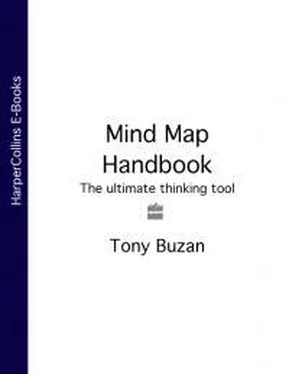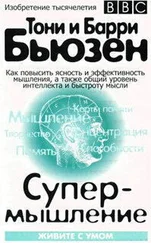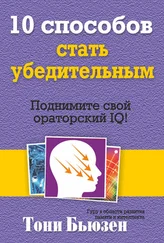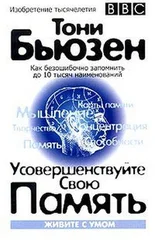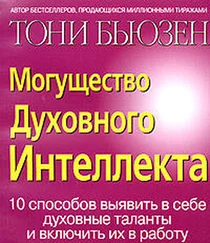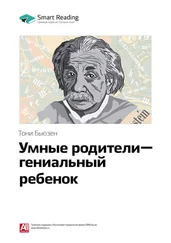(a) A believer in progress (from the Latin ‘ liber ’, ‘free’)
‘I am a Liberal. I demand independence in thought and action, and change and experimentation in politics.’
(c) A believer in familiar traditions (from the Latin ‘ conservare ’, ‘to preserve’)
‘The Conservative wishes to maintain the status quo, and as such is the opposite of the Liberal.’
(b) Able to endure pain and hardship without complaining (from the Greek ‘ stoikos ’, ‘porch’; the Greek philosopher Zeno, the founder of Stoic philosophy, taught at the Stoa Poikile or ‘painted porch’ in Athens)
‘The stoic suffered “the slings and arrows of outrageous fortune” without flinching.’
(c) Extreme lover of one’s country (from the French aristocrat Nicolas Chauvin of Rochefort, who was over-devoted to Napoleon and France and was ridiculed on the French stage)
‘His constant proclamations that his was the only country worthy of any praise on any level identified him as a Chauvinist.’
Word Power Booster Number 5
(d) To invest with life
‘Our team is looking listless and dull – we need to animate them.’
(c) Agreed by all
‘The boxer was so superior in his victory the judges gave him a unanimous decision.’
(a) Generous and forgiving
‘The victor showed great generosity – he was magnanimous in his support and praise of those he had vanquished.’
(d) Calmness; composure (from the Latin ‘ aequus ’, ‘even’ and ‘ anima ’)
‘Despite the frenetic activity going on all around him, he had an aura of complete equanimity.’
(c) Turn one’s mind to; consider critically (from the Latin ‘ animus ’ and ‘ advertere ’, ‘to turn’)
‘I animadvert that which I wish to focus.’
(b) Important person in industry
‘The magnates, all CEOs of their companies, gathered to celebrate and to discuss creative ideas in business.’
(a) Using flowery language
‘He was a magniloquent speaker, embroidering his speech liberally with similes and metaphors.’
(b) Greatness; grandeur
‘The magnificence of the new palace dazzled their senses.’
(d) Great literary or artistic work
‘Verdi’s Requiem is considered by many to be his Magnum Opus.’
(c) A wine bottle twice the standard size
‘To celebrate their 25th wedding anniversary, they bought themselves a magnum of Champagne.’
Word Power Booster Number 6
(c) Hackneyed or stereotyped phrase (from the French ‘ clicher ’, ‘to stereotype’)
‘His speech was riddled with phrases and sayings that everyone had heard many times before; it was full of clichés.’
(b) Comparing one thing with another (from the Latin ‘ similis ’, ‘like’)
‘When he said that the raging ocean was like a lion, he was using a simile.’
(c) Unclear (from the Latin ‘ ambi ’, ‘both, around’ and ‘ agere ’ ‘to lead’)
‘His speech was utterly ambiguous, and left everybody completely confused.’
(b) A mild word substituted for one that is more direct (from the Greek ‘ euphemizein ’, ‘to use auspicious words’; derived from ‘ eu ’, ‘good’ and ‘ pheme ’, ‘speech’)
‘Rather than call him “fat”, she resorted to euphemism and labelled him “slightly plump”.’
(a) A conclusion that does not follow from the facts (from the Latin phrase meaning ‘it does not follow’)
‘He kept on praising her good qualities, and similarly persisted in undermining her thereafter. His conversation was filled with non sequiturs .’
(b) Unnecessary repetition; no longer needed (from the Latin ‘ redundans ’, ‘overflowing’)
‘To describe something as “the littlest, smallest, weeniest, tiniest, microscopic and minimal” is the perfect example of redundancy, and would appear far more appropriately in Roget’s Thesaurus !’
(c) A concise and witty saying (from the Greek ‘ epigraphein ’, ‘to write upon’)
‘Her speech was dotted with clever, pithy sayings; epigram followed epigram followed epigram.’
(c) A word that sounds like what it describes (from the Greek ‘ onoma ’, ‘name’ and ‘ poiein ’, ‘to make’)
‘“Buzz”; “sizzle”; and “bong” are all good examples of onomatopoeia.’
(a) Light mockery or banter (from the French ‘ persifler ’, ‘to tease’)
‘The gentleman courteously engaged the young ladies in persiflage.’
(b) Something implying a resemblance to something else (from the Greek ‘ meta ’, ‘between’ and ‘ pherein ’, ‘to carry’)
‘He felt that “a rabbit caught in the headlights” was a apt metaphor for the hapless goalkeeper.’
Word Power Booster Number 7
(c) Speech full of power and imagination
‘Soaring flights of imagination and superb diction – his speech was eloquence personified.’
(d) Clear and expressive speech
‘Professor Higgins’ elocution lessons for Eliza Doolittle were, so successful that everyone thought that she was an aristocrat.
(b) Talkative; garrulous
‘She was loquacious, prattling on virtually non-stop, and far more interested in herself than in what others had to say.’
(c) Speaking thoughts aloud when alone; monologue (from the Latin ‘ solus ’, ‘alone’ and ‘ loqui ’)
‘The soliloquy is one of the main devices by which Shakespeare allows his main characters to reveal their thoughts to the audience.’
(b) Using many words when one will do (from the Latin ‘ circa ’, ‘around’ and ‘ loqui ’)
‘His circumlocution amused those who had been pre-warned that he took an eternity to get to his point.’
(d) Conversation; exchange of speech (from the Latin ‘ inter ’, ‘between’ and ‘ loqui ’)
‘They had an intense and fiery interlocution.’
(b) Articulate; inclined to speak
‘People had thought she was shy and disinclined to speak; on the contrary, she was definitely loquent.’
(a) A female interlocutor
‘Of the many intelligent women in the group, she was the main interlocutress.’
(d) A person’s style of speech
‘His locution was characterized by a gentle wit and a large vocabulary.’
(c) To declaim; to speak out in public
‘She felt compelled to elocute on the topic of animal welfare.’
Word Power Booster Number 8
(a) Love of mankind (from the Greek ‘ philein ’, ‘to love’ and ‘ anthropos ’, ‘human being’)
‘He found human beings so fascinating, he decided to take advanced courses in philanthropy!’
(c) Belief in a single supreme deity (from the Greek ‘ monos ’, ‘one’ and ‘ theos ’, ‘God’)
‘Christianity is an example of a religion in which believers practise monotheism.’
(b) Hatred of mankind (from the Greek ‘ misein ’, ‘to hate’ and ‘ anthropos ’, ‘human being’)
‘In his very occasional dark moods the philanthropist occasionally sank into brief bouts of misanthropy.’
(c) The love of words and the study of language (from the Greek ‘ philos ’, ‘love of’ and ‘ logos ’ ‘word, knowledge’)
‘In reading The Power of Verbal Intelligence you are engaging in the study of Philology.’
(a) The study of the whole human being (from the Greek ‘ holos ’, ‘whole’ and ‘ anthropos ’, ‘human being’)
Читать дальше
